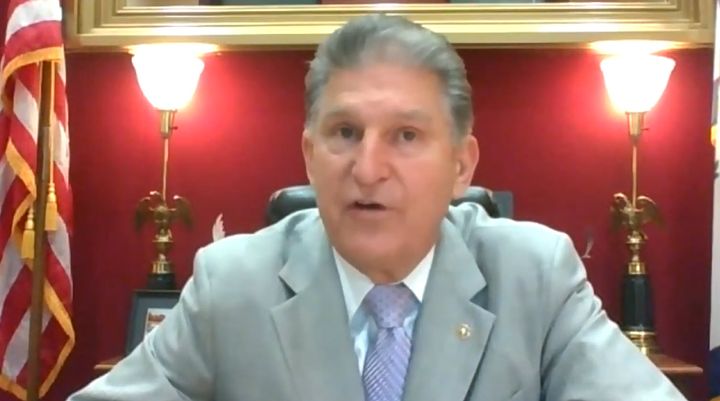Lobbyists who work to influence the federal government report spending, combined, about $3 billion per year for their efforts. But that figure is just a fraction of what corporations and other interests spend on their lobbying.
Besides making calls to congressional offices and holding briefings for staffers, lobbying organizations often employ “soft power” tactics to get information favorable to their causes in front of policymakers and influencers. For example, trade groups often plant op-eds built around their talking points on websites like The Hill that are read almost exclusively by D.C. insiders. It’s also common for groups to form astroturf coalitions and call on their audiences to lobby policymakers on their behalf.
To increase transparency of these activities, freshman Reps. Dean Phillips (D-Minn.) and Ben Cline (R-Va.) last week introduced a bill—the Lobbying Disclosure Reform Act of 2020—that would require companies, trade groups and other entities that employ lobbyists to begin disclosing information about the “strategic lobbying services” they employ in support of their lobbyists. The bill would require reporting of individuals employed in strategic planning, earned media and press strategy, polling, production of public communications, and encouraging people to take action to support or oppose a legislative or regulatory action through the formation of formal or informal coalitions.
Requiring disclosure of strategic services will partially address “shadow lobbying” by former members of Congress who join lobbying firms without technically registering as lobbyists in order to comply with ethics laws. “Most of these members do not go into lobbying—they become ‘strategic consultants,’ selling their experience and access in Congress, but not directly lobbying their former colleagues,” the bill authors said.
The bill comes years after a 2011 task force of good government groups, lawyers, and lobbying firm executives, convened by the American Bar Association (ABA), finalized a set of recommendations for enhancing transparency around lobbying. The group of 16 individuals held eleven meetings beginning in 2009, drafted and circulated position papers, and held straw votes on issues to come to a final set of recommendations, according to the group’s report.
In 2018, campaign finance reform groups Issue One, whose Executive Director Meredith McGehee participated in the ABA group, convened a new task force that endorsed a transparency proposal based on the 2011 recommendations. The group was a project of Issue One’s ReFormers Caucus, a bipartisan group of former politicians and public officials that says it advocates for “solutions to fix our broken political system.” It was co-chaired by two former reps who are now lobbyists—Republican Tom Davis, whose clients at Holland & Knight include CACI International and Cerberus Capital Management, and Democrat Vic Fazio, who lobbies for Gilead Sciences and American Airlines at Akin Gump.
The 2018 recommendations were then shopped around on the Hill and ultimately embraced by Phillips and Cline.
“[Phillips and Cline] have shown real leadership in putting forward this much-needed legislation,” said Michael Beckel, a research director with Issue One. “Their joint effort demonstrates that bipartisan political reforms—such as bringing more transparency to the lobbying industry—are possible.”
The bill also adopts a suggestion from the ABA to assign unique IDs to all lobbyist and lobbying registrants and to make those IDs publicly available so it’s easier to compile information from the lobbying report databases without worrying about lobbyists and clients who may have similar names. It also calls for improvements in how the information should be published, specifying that it must be searchable, sortable, and downloadable, and that it should be made available in a form that can be accessed by third-party applications.
Currently, the U.S. Senate’s bulk data portal for lobbying reports only offers folders of Excel files, noting, “Excel 2007 will perform better than older versions.” On the Senate search portal for lobbying activities, buttons for Excel and PDF exports of queries appear in the Firefox web browser, but have not been functional for some time; the buttons appear as broken in Chrome, Brave, Edge and Safari.
When lobbyists register to work for new clients, they would be required to disclose more detailed information about what they plan to work on, under the recently-introduced bill. Currently, lobbyists are required to list broad issue categories like trade or taxes on registration forms; the Phillips/Cline bill would require them to list specific federal regulations or proposed bills that they intend to work on.
House Democrats passed a bill in 2019, H.R. 1, that is described by its sponsor, Rep. John Sarbanes (D-Md.) as a “suite of reforms that will strengthen American democracy and return political power to the people.” It would require “dark money” groups to disclose their donors, create a matching fund system for small donors, and ban members of the House from serving on corporate boards while in office. It would also expand lobbying disclosure requirements by specifying that counseling in support of lobbying contacts is lobbying and must be required. House Speaker Nancy Pelosi (D-Calif.) and Senate Minority Leader Chuck Schumer (D-N.Y.) have said that passing H.R. 1 into law will be a first or top priority if they win majority control of both chambers in the upcoming elections. Joe Biden has reaffirmed his support for H.R. 1’s reforms and has long supported a public financing system for federal campaigns, first co-sponsoring legislation to create it in 1973, his first year in the U.S. Senate.
Read more Democracy coverage from Sludge:
New Ohio Speaker Has His Own Ethics Issues Involving FirstEnergy
Here Are the Billionaires Funding Trump’s Voter Suppression Lawsuits
States and Cities With Public Campaign Financing Lead on Paid Sick Leave Policies



